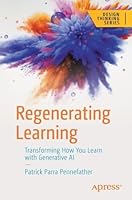
Pro iOS 5 Augmented Reality
- Length: 356 pages
- Edition: 1
- Language: English
- Publisher: Apress
- Publication Date: 2011-12-14
- ISBN-10: 1430239123
- ISBN-13: 9781430239123
- Sales Rank: #3241868 (See Top 100 Books)
Augmented reality takes the real world and through the use of graphics, sound and other effects allows you to enhance the environment. It makes a game more real. Your social media app puts you where want to be or go.
Pro iOS 5 Augmented Reality walks you through the foundations of building an augmented reality application for the iPhone or iPad. From using MapKit, to the accelerometer and magnetometer, to integrating facial recognition and Facebook data, you’ll learn the building blocks of creating augmented reality applications. Case studies are included in this one-of-a-kind book and you’ll learn how to create augmented reality apps that unleash the full potential of the on-board sensors and camera. This book complements other iOS game or social media apps development books available from Apress.
After reading Pro iOS 5 Augmented Reality, you’ll be able to build augmented reality rich media apps or integrate all the best augmented reality techniques and tools into your existing apps.
What you’ll learn
- The differences in hardware sensors, cameras and more between the iPhone 4 and iPhone 4S, iPod touch, iPad and iPad 2
- How to use MapKit and integrate it into your app
- How to play and record sound within an augmented reality app
- How to use the iPhone or iPad camera and video
- How to program against the accelerometer and gyroscope to detect movement and the orientation of the iPhone or iPad
- How to access and use the information from the magnetometer (compass)
- How to use cocos2D to overlay a heads-up display on the camera view
- How to integrate facial recognition into your app
- How to build augmented reality feature-rich enterprise game and Facebook apps
Who this book is for
This book is for iOS developers familiar with iOS programming, but new to the camera, accelerometer, magnetometer and building augmented reality applications in general.
Table of Contents
- Introduction
- Hardware Comparisons
- Location Services
- iOS Sensors
- Sound and User Feedback
- Camera and Video
- Using cocos2D for AR
- Building a cocos2D AR Game
- Third-party AR SDKs
- Building a Marker-based AR App Using OpenGL
- Building a Social AR App
- OpenCV and Facial Recognition
- Building a Facial-recognition AR App







